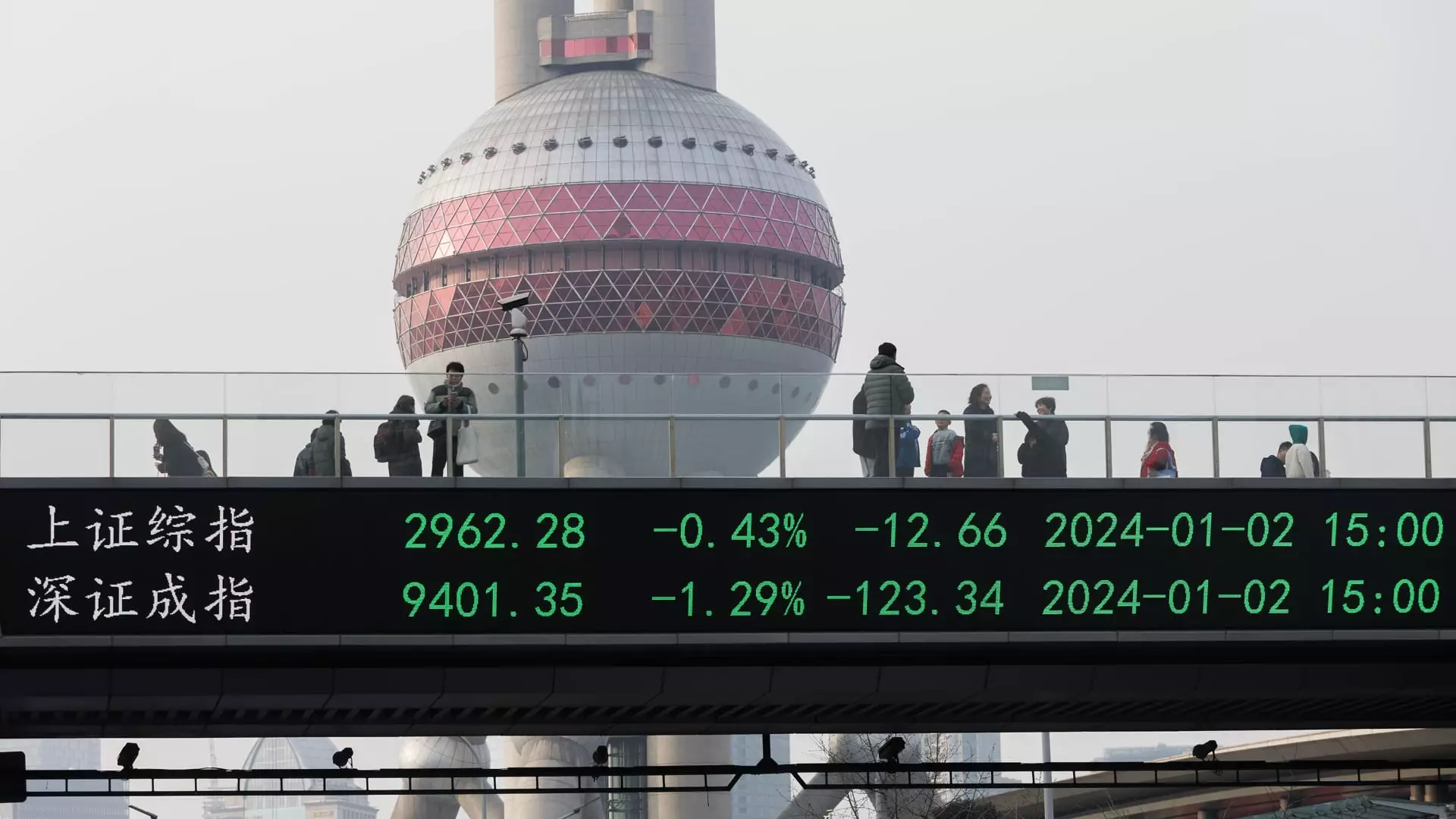Despite mainland Chinese markets being closed for a week-long holiday, international exchange-traded funds (ETFs) that track Chinese stocks have experienced a noteworthy rally. Funds such as the KraneShares CSI China Internet ETF (KWEB) and the iShares China Large-Cap ETF (FXI) saw significant gains, with increases of at least 5% reported. This surge reflects the optimism fueled by recent government stimulus measures aimed at revitalizing the struggling Chinese economy. As investors look for ways to capitalize on this new uptrend, it is essential to analyze the underpinnings of this market behavior.
Stimulus Measures and Market Reaction
The driving force behind the rally can be traced back to a series of stimulus initiatives unleashed by the Chinese government amidst a period of economic stagnation. These measures included interest rate cuts and lowered reserve requirements for banks, intended to inject liquidity into the economy. Such actions have restored some level of confidence among investors who had been wary due to previous regulatory crackdowns and sluggish business performance.
The perception that the Chinese government is committed to providing ongoing support for its economic recovery has shifted sentiment among investors. Scott Rubner, a tactical specialist at Goldman Sachs, recently expressed a bullish perspective on Chinese equities, noting unprecedented demand unseen in previous market cycles. This newfound enthusiasm is critical to restoring equilibrium to the affected sectors of the Chinese economy, positioning assets for potential appreciation in alignment with government policies.
Investors Under Scrutiny
The renewed interest in Chinese stocks has not gone unnoticed by prominent investors, including hedge fund manager David Tepper, who indicated his aggressive stance on investing in China. His strategy of buying into “everything” related to the market underscores a broader trend of rediscovered faith in Chinese equities. The performance of specific companies, such as JD.com and PDD, illustrates the positive trajectory in the e-commerce sector, further solidifying the argument for a more optimistic outlook.
However, while the market’s current momentum is promising, it is crucial for investors to critically assess the sustainability of these trends. The long-term effects of the government’s stimulus measures remain uncertain, and there are still underlying concerns around regulatory scrutiny and geopolitical tensions that could impact market stability.
As the international markets reflect a rally in Chinese equities, investors must navigate with caution. The interplay between government action and market response presents a complex landscape that holds both opportunities and risks. While the immediate sentiment may be favorable, potential volatility looms—reminding investors that the path ahead could still be fraught with challenges. Understanding the nuances of this scenario will be key for anyone looking to capitalize on the evolving dynamics of the Chinese stock market amidst a globally interconnected economy.

